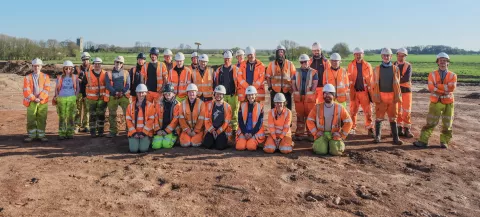Our people
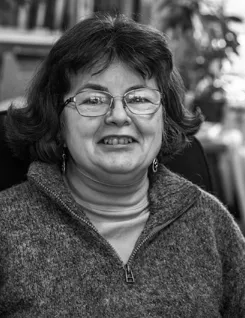
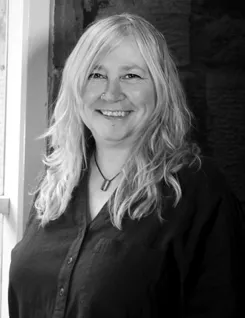
Denise is one of a team of in-house environmental archaeologists who has worked at our Lancaster since 2003. Denise began her career in environmental archaeology as a palynologist but can now add the identification of charred plant remains, charcoal, waterlogged plant remains, and wood to her suite of specialist skills. She also contributes to geoarchaeological investigations and interpretation when required. Prior to joining Oxford Archaeology, Denise worked as an Environmental Archaeology Assistant for CADW (Welsh Historic Monuments) and for the Palaeoenvironmental Research Centre, Lampeter University (now University of St David’s). Denise’s academic achievements include obtaining a PhD from Bristol University in 2001, which focused on Mesolithic to Romano British environmental change of the Severn Estuary and being awarded a first-class degree in Environment and Archaeology at University of Wales, Lampeter, in 1996. Denise’s main area of interest is in early prehistoric environments and plant resource use.

Hayley joined Oxford Archaeology’s Cambridge office in 2017 as our Zooarchaeologist. Hayley graduated with a BA in Anthropology from the University of North Carolina at Greensboro (USA), an MA in Osteoarchaeology from University of Southampton and a PhD from the University of Exeter. Her PhD research involved studying butchery practices and dining habits from medieval castle faunal assemblages. Hayley has worked as a Zooarchaeologist since 2007 in Ireland, Turkey and the UK.
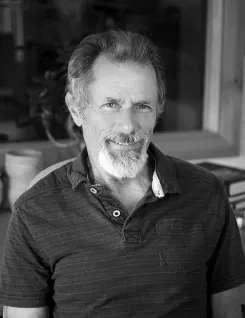
Ian is a member of the Professional Zooarchaeology Group, and his current role and area of expertise is to assess, analyse, interpret, and report on vertebrate (mainly mammal and bird) bone assemblages. Ian was first involved in archaeology in 1985 and subsequently went on to gain a BA (Hons) in Archaeology and Prehistory (1986-9) and a Masters (MSc) in Environmental Archaeology and Palaeoeconomy (specialising in animal bones) from Sheffield University (1995-6). He was employed in Chester as an Environmental Archaeologist (again specialising in bones) for twelve years and has been a Project Officer at our Lancaster since 2013. He has also undertaken research on cave faunas of north-west England and has analysed and reported on animal bone assemblages from Europe, the Middle East and Asia.
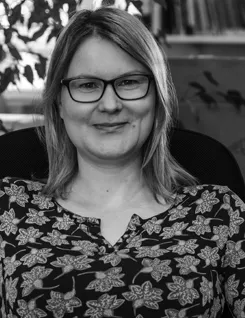
Julia has worked within the Environmental Department at Oxford Archaeology since 2007, after completing a BSc in Archaeology at the University of Reading and an MA in Landscape Archaeology at Bristol University.
During her 10 years at Oxford Archaeology she has supervised the recovery of environmental material from a diverse range of sites. In particular, she oversaw the environmental aspects of the major infrastructure projects at St Brieuc, Brittany and at the Bexhill to Hastings Road Scheme in East Sussex. As an archaeobotanist, Julia now spends much of her time in the environmental laboratory at Oxford Archaeology’s Oxford office, analysing charred and waterlogged plant macrofossils and charcoal.

Maria started working as a Palynologist for Oxford Archaeology in 2023. She graduated from the University of Reading in 2015 with a BSc in Archaeology and in 2016 an MSc in Environmental Archaeology, and completed a PhD in Archaeology in 2023 focussing on human-environmental interactions in the Zagros region (present-day Iraq and Iran) during the Late Pleniglacial, Lateglacial and Holocene, using pollen, non-pollen palynomorph, micro-and macro-charcoal and geochemical analyses (ITRAX, magnetic susceptibility and organic and bulk carbonate determination).
Maria has experience in working on lake and wetland sediment and pollen from the UK, Italy, Iran and Iraq. Prior to working for Oxford Archaeology, Maria worked for Quaternary Scientific (Technical Support) and Border Archaeology (Environmental Science Assistant). Her previous role was a research assistant for the Faynan Heritage project looking at sustainable heritage and cultural tourism in Jordan.

Rachel has worked for Oxford Archaeology since 2000 following a career change from pharmaceutical research. As Environmental Manager for Oxford Archaeology's Cambridge office, Rachel is responsible for the running of the sample processing facility at Bourn, site sampling strategies and the co-ordination of the processing and archaeobotany programmes.
As an archaeobotanist, Rachel specialises in the identification and interpretation of charred, mineralised and waterlogged plant remains and she has worked on assemblages of all periods from numerous sites in the East of England, resulting in extensive regional knowledge. Rachel has a particular interest in cereal cultivation, processing and brewing and related experimental archaeology.
Rachel is a member of the Association of Environmental Archaeologists and an Associate of the Chartered Institute for Archaeologists (ACIfA).
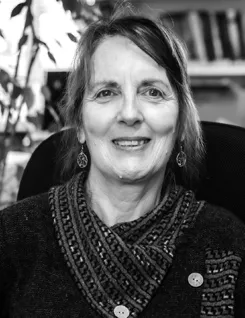
Rebecca has a professional career spanning over 35 years. She has been Environmental Manager at Oxford Archaeology's Oxford office since 2005 and is the team lead. She holds a D.Phil in Biology and a BA (Hons) in Archaeology & History from the University of York as well as an MA in Environmental Archaeology and Palaeoeconomy from the University of Sheffield. She has previously held academic research posts and has over 100 authored and co-authored publications covering specialisms as diverse as dendrochronology, parasitology and archaeozoology, although her main specialist field is archaeoichthyology. Rebecca is responsible for designing sampling strategies for a wide range of developer-led and research focussed projects and liaising with a range of specialists to ensure high academic standards and an effective outcome for our clients. She is a Member of the Chartered Institute for Archaeologists (MCIfA) and a member of the Association for Environmental Archaeology.

